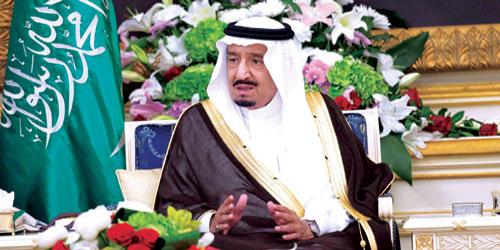
Saudi budget may unveil changes in revenue policy
Prominent Saudi economists, cited by Reuters, expect the 2016 budget to plan spending of about SR800 billion, roughly 20 percent lower than their estimate of this year's actual spending.
A senior official of Saudi Aramco and the ministers of Economy and Planning, Finance, and Water and Electricity will appear at a news conference on Saudi Arabia's 2016 state budget on Monday, official sources said on Sunday.
The news conference is scheduled for 1200 GMT on Monday and details of the budget are expected to be announced at or shortly before that time.
The ministers are expected to give presentations on their parts of the budget. The Maaal financial website reported that Saudi Aramco would be represented by CEO Amin Nasser.
In recent years, the government has released the annual budget without holding a news conference. But the 2016 budget is expected to contain major changes in spending and possibly revenue policy in order to cut a deficit caused by low oil prices, and officials may want to explain these to the public.
Fahad Alturki, chief economist and head of research at Jadwa Investment, told Arab News: “We expect that the economy will continue to slow in 2016, dragged down by slower growth in both the oil and nonoil sectors. The nonoil private sector will continue to grow albeit at a slowing pace, as reduced government spending should continue to have a negative impact on business activity.”
However, he added: “We think that government will maintain a level of spending high enough to continue supporting positive growth in the nonoil private sector. We expect the 2016 to confirm again the government’s determination and ability to support economic activity despite the prevailing subdued oil pricing environment. It will most likely highlight the strong focus on economic diversification as spending on physical and social infrastructure are likely to be kept at elevated levels.”
Reuters said the deficit for this year is expected to come in at about SR400-SR500 billion ($107-133 billion), around 20 percent of gross domestic product, prominent Saudi economists estimate.
They expect the 2016 budget to plan spending of about SR800 billion. The result, if Brent oil stays around $40 a barrel next year, could be a deficit of around SR200 billion — enough of a cut to let Riyadh slow the liquidation of its foreign assets.
Minister of Economy and Planning Adel Fakeih, who took office in April, has begun to play a key role in planning Saudi Arabia's strategy to cope with an era of cheap oil, Reuters added.
Asim Bakhtiar, head of research and investment advisory, Saudi Fransi Capital, said: “Saudi Arabia can either spend its way out of the current scenario or start belt tightening. In the past the country has spent lavishly on health, education and infrastructure in difficult times knowing that oil prices will be supportive.”
He added: “Spending will be more indicative of government confidence in oil recovery. If oil has entered a down cycle then belt tightening will prevail. More likely it will be a combination of prudent, strategic spending combined with supplementary alternate revenue measures such as subsidy adjustments and various levies.”
As the company handling Saudi crude oil production, Saudi Aramco is central to economic policy and government finances.
Oil income accounts for more than 90 percent of public revenues in Saudi Arabia.
On Wednesday, Custodian of the Two Mosques King Salman said he has ordered economic reforms to diversify sources of income and reduce high dependence on oil following a sharp drop in crude prices.
"Our vision for economic reform is to increase the efficiency of public spending, utilize economic resources and boost returns from state investment," he said in an address to the Shoura Council.
"I have directed the Council of Economic and Development Affairs to devise the necessary plans, policies and programs to achieve that," he told the council.
Sami A. Al-Nwaisir, chairman of the board, Al-Sami Holding Group, said: “We believe that the new budget will be a conservative one but not an expansionary one like the previous one. Nor its austerity measures will be too extreme as it was in 1980s. So, this bring us back to the subject of priorities spending and rationalization but nothing to disturb to the well-being of the economy or the welfare of the people such as imposing taxes or increase the retirement age or uplift the subsidy on fuel or electricity.”
Fawaz Alfawaz, a Riyadh-based economic consultant, told Arab News: “The most likely scenario is that the budget will express clearly the desire to continue infrastructure outlays because they know consequences of underinvesting in the economy. Also many of these are under construction already, so it will be completed.”
However, he added: “The financing is likely to continue as in the recent past and previous oil cycles, with an organized reduction across the board, drawing on reserves and domestic borrowing program.”

























